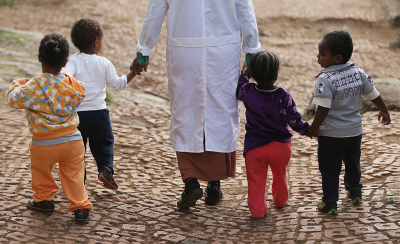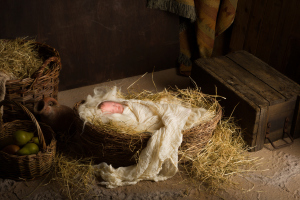In mission work, we must begin and end with God

The world of Christian international missions is full of people with generous hearts who see a global need, are moved to address it, then do their very best to help.
But for a long time, there were no standards by which short-term missionaries could measure their programs or performance. Sometimes their efforts succeeded, sometimes they failed. Occasionally, well-intentioned people brought some harm to the very communities they sought to serve.
That’s why universal, accessible standards of excellence are so critical to short-term missions work. They can be a meaningful opportunity to initiate lasting, positive change in the lives of vulnerable populations around the world.
Without such guidance, it’s easy to make mistakes — and some of them are serious.
Care for orphaned and vulnerable children is an area that stands out as especially in need of reform. So many Christians want to help feed, protect and educate vulnerable children — and in many cases, they try to do so by supporting residential care facilities, like orphanages and children’s homes, in the areas they’re visiting.
But we know now that family empowerment is the best way to help these children. Strong families build flourishing, independent communities. They foster emotional, physical and psychological development in a way no institution ever could.
Many of the mistakes in mission trips boil down to one simple fact: People with resources tend to also be the people with power. Navigating the resource imbalance across different cultures is very delicate and must be very intentional to avoid missteps.
Short-term missions teams sometimes foster dependency in the areas they’re visiting by meeting “needs” the community could be handling itself. These groups can also unintentionally put themselves in the driver’s seat by pre-defining the services and resources they’re willing to provide. When we’re not careful, it’s easy to take power away from non-Western global partners in the mission field.
We shouldn’t do for others what they can do for themselves, and that is particularly true of parenting. The vast majority of children living in orphanages and children’s homes have living parents and are placed there due to poverty. By focusing mission trips on supporting orphanages and children’s homes, we can undermine the natural coping mechanisms for parents, like extended family and community support. However, recognizing the opportunity to empower local families to care well for their children provides a sustainable solution.
World Orphans is a wonderful example of the fruitfulness of aligning with standards of excellence in missions for serving orphans and vulnerable children and finding ways to build upon community-based solutions. When originally founded, their mission trips were largely focused on volunteering with children who were living in residential care facilities in vulnerable communities.
But this work didn’t always support their larger goal to holistically care for children in need. So, they changed strategies. They listened to local partners, partnered with the Standards of Excellence in Short-term Mission (SOE), where I work, and rethought their global partnership strategy.
This wasn’t without its challenges, of course. U.S. partners initially expressed disappointment with the changes to the trips. They missed the face time they used to get with the children living in residential care. However, once World Orphans began to cast a vision for what empowering families and communities could look like to new partners, these challenges and disappointments began to fade.
Now, they steward a rich network of partnerships between U.S churches and international churches in communities all over the world that result in sustainable change for vulnerable children and families — and they’re just getting started.
Missions work is demanding, and organizational reform is taxing as well. But it’s important to step back and remember that God abides at the center of all our work and that His will cannot lead us astray. If we remain centered on and by God, He will keep us humble enough to accept the changes we need to make and strong enough to make them. He will inspire in us the love and fortitude necessary to empower families and communities all across the world.
Missions aren’t about us, but about those we serve. And adhering to objective standards of excellence that begin with God is the way to make sure we serve them rightly.
Tory Ruark is the Chief Operating Officer at Standards of Excellence in Short-Term Mission.




























